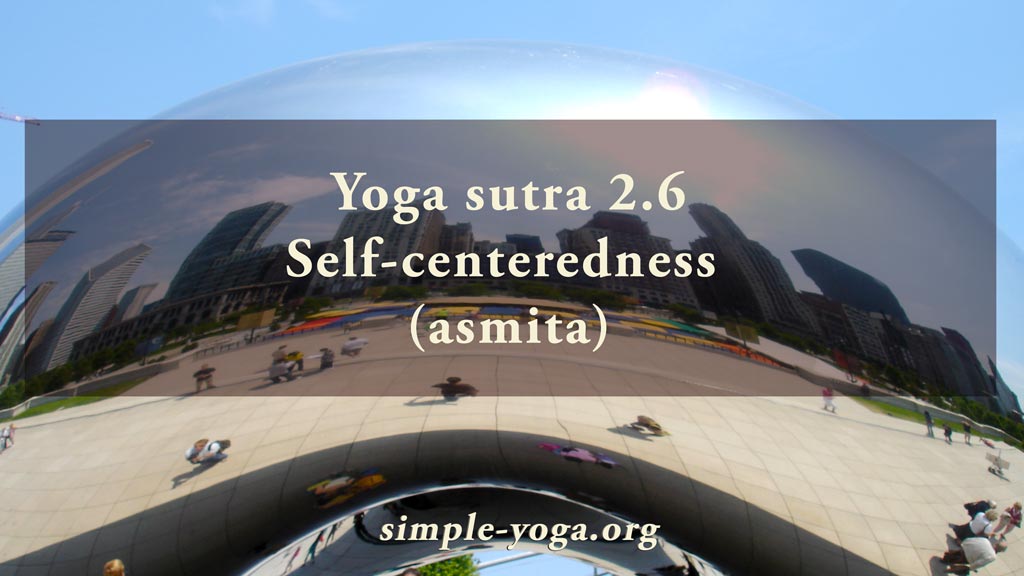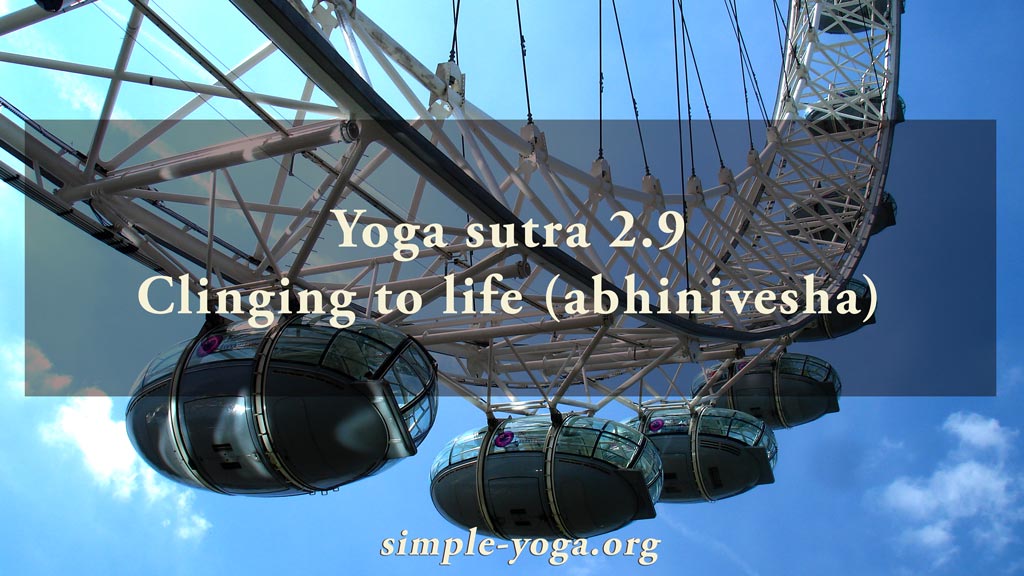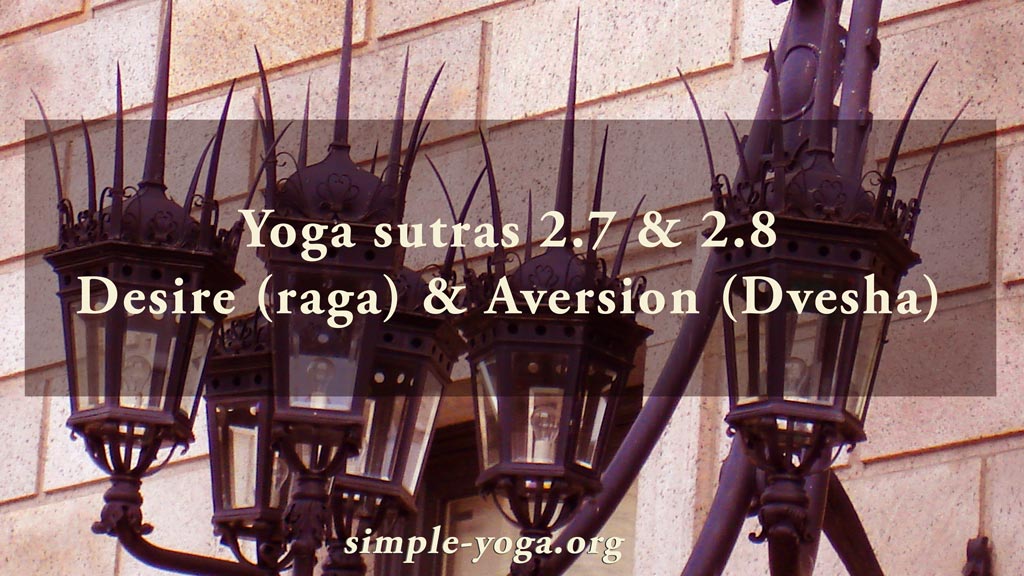
2.6 Self-centeredness (asmita)
April 20, 2020
2.9 Clinging to life
May 3, 2020
2.6 Self-centeredness (asmita)
April 20, 2020
2.9 Clinging to life
May 3, 20202.7 & 2.8 Desire and Aversion

2.7 Craving enjoyment is desire (raga).
2.8 Rejecting pain is aversion (dvesha).
Identifying with the instruments of sensation and perception (body, mind, emotions and memories) contributes to create a sense of “I.” Naturally, this “I” develops affinities for the experiences you find enjoyable and dislike for the sensations that create discomfort and pain. Therefore, you will crave enjoyable experiences and you will resist or avoid uncomfortable sensations. It is very likely that these tendencies will grow into habitual patterns. These two sutras present the two afflictions of likes (raga) and dislikes (dvesha). They are afflictions when they get in the way of just being with what is. In fact, likes and dislikes may become the filters through which you approach yourself, your circumstances, your experiences and your relationships. Eventually, likes and dislikes end up deeply influencing your ideas, motivations and actions. Your likes and dislikes may define who you think you are and can even become the conditions that preclude you from accepting this moment as it is, and yourself just as you are. Confirming the notion that a sutra is a continuous conceptual thread unifying a whole text, these two verses can be seen as related to the idea of vairagya presented in sutra 1.15, where vairagya is freedom from all your likes and dislikes. It is quite possible that your thoughts about what you like and dislike differ from your actual experiences of those situations and circumstances.
For instance, has it ever happened to you that something you worried about eventually happened, without being as devastating as you had imagined? Similarly, have you ever found that something that was “supposed to make everything ok” did not seem to have that effect? Or, was there ever a time when the effect of an accomplishment may have not lasted as long as you thought it would? Has it ever happened that something that you once considered a pleasure later became a source of suffering? Are you in charge of your likes and dislikes, or are they driving your decisions and actions? What is the origin of your wanting and cravings? Are some of your actions guided by a sense of scarcity or neediness? To what extent do fear, anger and judgment motivate your decisions and actions? To what extent do you believe that your likes and dislikes define who you are? Where do your likes and dislikes go when you are asleep? Is there any time during your day when you are free from all of your preferences?
As usual, one more way of exploring the meaning of this sutra is by chanting it.
You can choose to chant it in its traditional form with some of the words coming together:
For sutra 2.7
sukhānuśayī rāgaḥ
सुखानुशयी रागः ॥७॥
Another option is to chant each word in the sutra individually:
- sukha
- anuśayī
- rāgaḥ
For sutra 2.8
duḥkhānuśayī dveṣaḥ
दुःखानुशयी द्वेषः ॥८॥
Another option is to chant each word in the sutra individually:
- duḥkha
- anuśayī
- dveṣaḥ
If you prefer, you may listen to the podcast:
Unravel the thread is now available as a book!
If you find Simple-Yoga.org and Unravel the thread useful, consider supporting my labor with a donation, you may also donate using PayPal or Venmo. Thank you!
